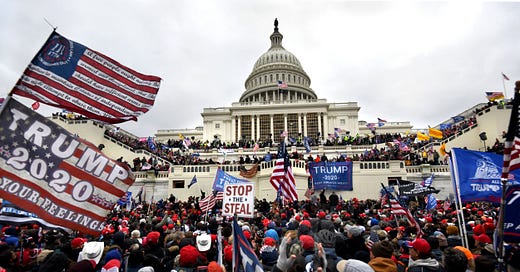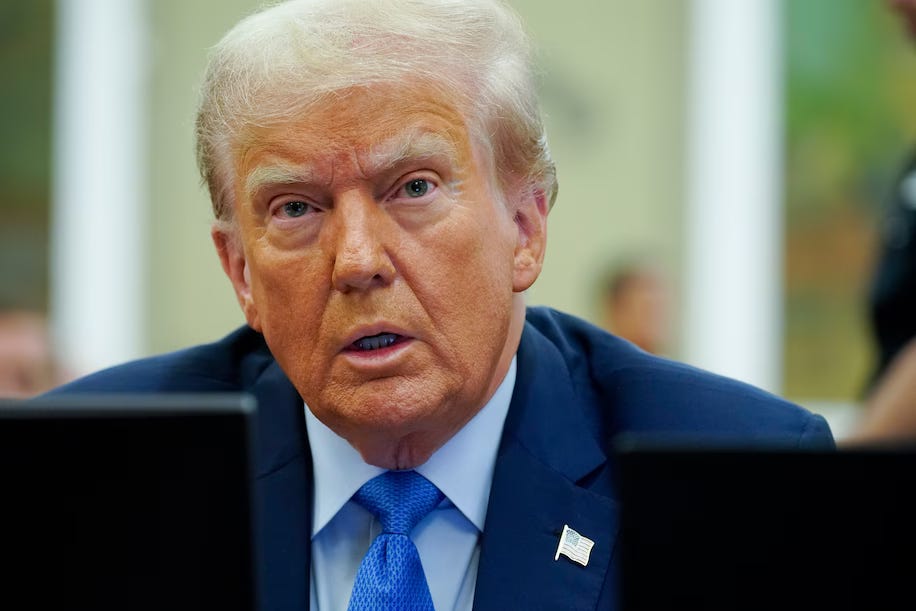Breaking News (Updated): Appeals Court Rules Former President Trump Not Immune to Civil Lawsuits Over January 6 Capitol Riot
U.S. Constitution has provides absolute immunity to Presidents from criminal prosecution for actions undertaken during their tenure. However, the scope of this immunity in civil cases has been fuzzy.
Landmark Court Decision Limits Trump's Presidential Immunity in Civil Lawsuits
Washington, D.C. – A Federal Appeals Court in Washington, D.C., issued a crucial ruling today, significantly impacting the legal landscape surrounding former President Donald Trump. The Court decided that Trump does not have presidential immunity in civil lawsuits pertaining to the January 6, 2021, Capitol Hill insurrection.
Presidential Immunity Reevaluated
Today’s ruling by a Federal Appeals Court in Washington, D.C. has redefined the scope of presidential immunity in the United States, in the context of civil suits. Historically shielded with absolute immunity from criminal prosecution for actions during their term, U.S. Presidents have now been placed under a new legal microscope, particularly in civil cases. Chief Judge Sri Srinivasan's opinion, a cornerstone of this ruling, accentuates the notion that a President's immunity is not limitless. His statement delineates a clear boundary between official duties and private actions, underscoring that when a President acts outside their official capacity, they step out of the umbrella of immunity and into the realm where they can be subject to civil lawsuits, just like any private citizen.
This unanimous decision, supported by Judge Greg Katsas and partially by Judge Judith Rogers, signals a significant shift in the legal landscape, allowing the January 6 lawsuits against former President Trump to move forward. It serves as a landmark precedent, reaffirming the principle that even the highest office in the land is not immune to accountability for actions beyond their official functions.
Escalating Legal Challenges for Trump
This pivotal judgment arrives amidst a myriad of legal challenges faced by Trump. He is currently named as a defendant in a lawsuit initiated by Capitol Police officers and Congressional Democrats. The ruling opens up the possibility for additional civil suits against him. As Trump navigates through four criminal trials and a civil fraud suit in New York State, this appeals court decision adds another layer of complexity to his legal troubles, particularly as he considers a run in the 2024 presidential election.
Although this judgment specifically pertains to civil suits, it's likely to influence Trump's defense strategies in criminal trials. His claim for presidential immunity could be countered with the argument that the actions for which he is indicted fall outside the ambit of his presidential duties. For instance, it could be argued that in a hypothetical scenario where a sitting President commits a crime like murder within the White House, presidential immunity should not apply. This judgment underscores a critical legal perspective: certain actions, even those by a sitting President, may not be protected under the guise of presidential immunity.
The Three Civil Lawsuits Can Now Proceed
The unanimous decision by the DC Circuit Court of Appeals allows three lawsuits to proceed against Trump, filed by Capitol Police officers and Congressional members seeking recovery for emotional and physical harm from the January 6 attack. These lawsuits hinge on a federal law that prohibits conspiring to prevent someone from holding federal office.
Key Takeaway: Official Duties vs. Campaign Activities
The court distinctly separated campaign activities from official presidential duties. It acknowledged that Trump's rally preceding the Capitol riot, potentially part of his campaign, does not fall under presidential immunity. This distinction is crucial, as it indicates that a President's actions during a reelection campaign are not automatically shielded by immunity.
The Path Forward for the Lawsuits
Despite this setback for Trump, the legal journey is far from over. The former President still has opportunities to contest the facts and argue for immunity as the cases progress, especially as they enter more extensive evidence-gathering phases. The court's decision underscores the nuanced nature of presidential immunity, particularly in the context of reelection campaigns and civil litigation.
Summing Up
This landmark decision by the Federal Appeals Court marks a point of inflexion in the discourse surrounding presidential powers and protections. It sets a precedent for how actions undertaken by a President, particularly during campaign periods, are perceived and treated in the legal realm. As these civil lawsuits against Trump move forward, they will undoubtedly continue to shape the conversation around presidential conduct and accountability, perhaps even touching the fringes of criminal culpability.






